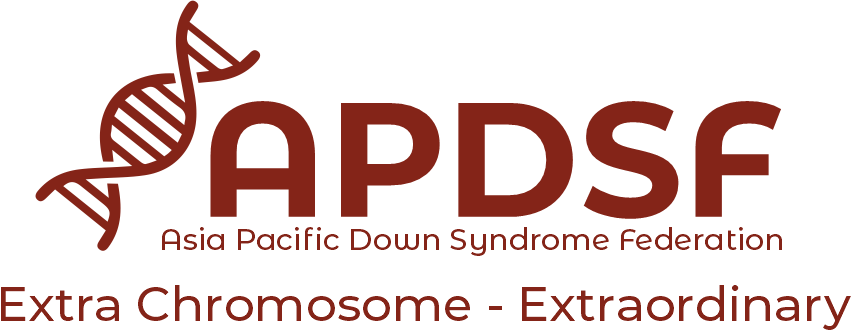Health Tools help you make wise health decisions or take action to improve your health.
Action sets are designed to help people take an active role in managing a health condition.
Cause
Down syndrome is caused by having an extra chromosome. Usually a person has 46 chromosomes, 23 from each parent. A person with Down syndrome has 47.
Each chromosome carries a group of genes that tell the body and brain how to develop. Having an extra chromosome changes the way a baby’s body and brain develop during pregnancy and after birth.
The extra chromosome that causes Down syndrome forms when cells don’t divide like they should. This cell division error might happen in the sperm or egg cell before a baby is conceived. Or it might happen after an egg is fertilized.
Although doctors know that Down syndrome is caused by an extra chromosome, they don’t yet know what causes the cell division errors that create it.
Symptoms
Children with Down syndrome have a range of symptoms. They may share similar features, such as almond-shaped eyes that tilt upward. And they usually learn to talk later than other children and have some intellectual disability. But every child is different, and each will have unique strengths and abilities.
Some children may also have certain health issues, such as heart, intestine, ear, or breathing problems. These issues often lead to other problems, such as airway (respiratory) infections or hearing loss. But most of these problems can be treated.
What Happens
Every person’s experience of Down syndrome is different. Many of the challenges people with the condition face are related to intellectual disability and health problems. But different people will have different abilities and symptoms.
Children with Down syndrome may reach milestones later than other children. These include things like sitting, standing, walking, and talking. And as they get older, they may have some behaviour problems.
As people with Down syndrome become teens and grow into adults, they may have problems handling strong emotions. Sometimes these struggles can lead to mental health problems, especially depression. But counselling can help to manage mental health.
Occupational therapy can help teens and adults learn important life skills. It can help them prepare to have a job and live more independently. Most people with Down syndrome can live happy, healthy, and productive lives.
You can look for Medical Support if:
- Your baby or very young child with Down syndrome shows signs of:
- Intestinal blockage, such as severe belly pain, vomiting, and possibly swelling of the stomach.
- A sudden change in eating habits.
- A sudden change in activity level.
- A person of any age with Down syndrome shows symptoms of dislocated neck bones. This condition often occurs after an injury. Symptoms may include:
- Neck pain.
- Limited neck movement.
- Weakness in the arms and legs.
- Trouble walking.
- A change in bowel or bladder control.
- If a person with Down syndrome:
- Acts differently or stops doing things that they used to. These may be a sign of pain or an illness.
- Shows signs of mental health issues, such as anxiety or depression. Depression may be triggered by a big change or loss, such as the death of a family member or a change in a caregiver.
